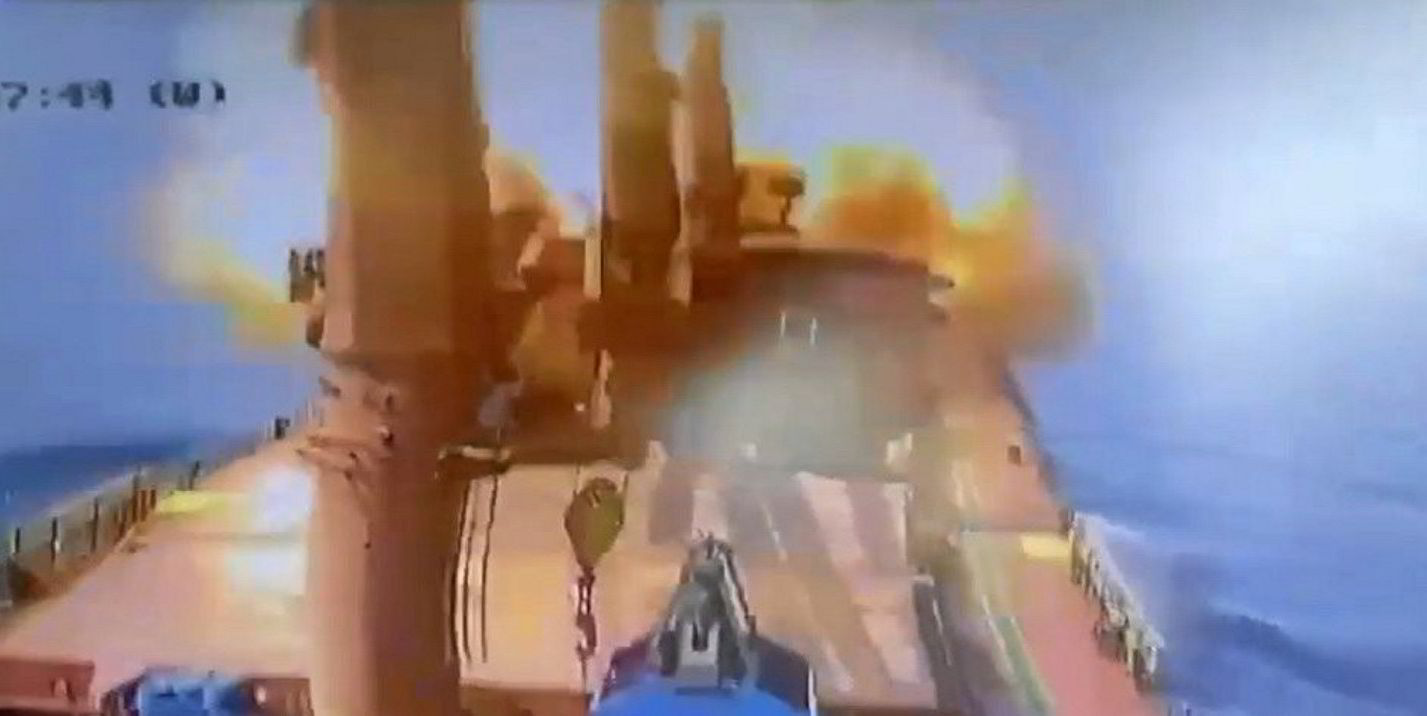The US and UK militaries launched renewed strikes on targets in Yemen late on Monday after Houthi rebels broke a weekend pause by claiming to have resumed their attacks on vessels.
The strikes targeted eight sites in Houthi-controlled parts of the country hosting “missile systems and launchers, air defence systems, radars and deeply buried weapons storage facilities,” US Central Command (Centcom) said in a statement.
The Yemeni rebel group stated that 18 air strikes were carried out, most in the Sanaa and Hodeidah regions.
“These attacks will not go unanswered and unpunished,” Houthi military spokesman brigadier general Yahya Saree posted on X early on Tuesday.
The US and UK strikes came after the Houthis claimed to have hit yet another vessel in their campaign against shipping, the US-flagged, 10,700-dwt heavylift ship Ocean Jazz (built 2010).
“Appropriate naval missiles” were fired on the vessel, Saree posted on Telegram On Monday. The Houthi official did not elaborate if the vessel, which he described as “an American military cargo ship”, was impacted.
The Clarksons Shipping Intelligence Network database lists the Ocean Jazz as operated by New Orleans heavylift vessel operator Intermarine and managed by Tampa-based Seabulk Fleet Management, a unit of Seacor Holdings.
Neither company could be immediately reached for comment.
Mutual escalation
US Naval Forces Central Command said on Monday that there was no “successful” attack on the Ocean Jazz.
“The Iranian-backed Houthi terrorists’ report of an alleged successful attack on M/V Ocean Jazz is patently false,” the Bahrain-based US Navy command known as NAVCENT said. “NAVCENT has maintained constant communications with M/V Ocean Jazz throughout its safe transit.”
Saree said that the Ocean Jazz was sailing in the Gulf of Aden.
This can not be immediately corroborated since the ship’s AIS system seems to have been shut off. The last visible signal of the Ocean Jazz on the VesselsValue ship tracker shows the vessel four days ago, just south of the Suez Canal and heading south.
“Yemeni Armed Forces persist with their military operations: enforcing a blockade on Israeli navigation in the Red and Arabian seas until a ceasefire in Gaza is achieved, and the siege is lifted,” Saree said in the post, referring to the Houthi military as Yemen’s armed forces.
In a reference to recent US and UK air strikes against Houthi targets, Saree added that the Houthis would “continue to retaliate to any American or British aggression against our country”.
The US Maritime Administration has urged vessels to avoid the region.
“There continues to be a high degree of risk to commercial vessels transiting the Southern Red Sea,” the agency says on its website.
“While the decision to transit remains at the discretion of individual vessels and companies, it is recommended that US flag and US-owned commercial vessels remain North of 18N in the Red Sea or East of 46E in the Gulf of Aden until further notice.”
The Houthi attacks have led major container liners and an increasing number of tankers and bulkers to avoid the region, rerouting ships around Africa instead.
According to the latest Clarksons figures released late on 19 January, total ship arrivals to the Gulf of Aden are now 65% below 2023 levels.
Disruption is biggest for container ships and gas carriers, which are down a staggering 90%. Tankers, which were initially unaffected, are now down 45%. The same goes for bulkers, the arrivals of which have dropped by about 30% from 2023 levels.





